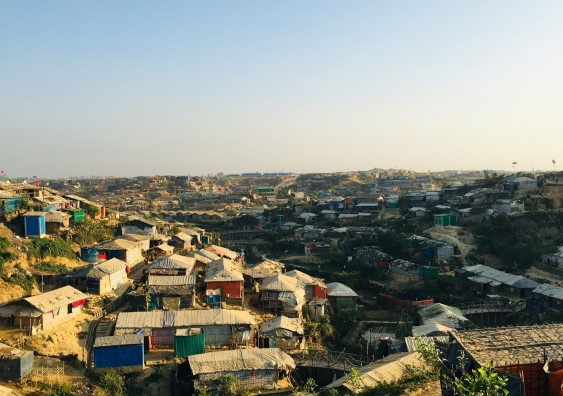Online supervision will support mental health workers in humanitarian locations
UNSW Sydney researchers have been awarded a $1.3m grant to establish support programs for local psychologists in Syria, Turkey and Bangladesh.
UNSW Sydney researchers have been awarded a $1.3m grant to establish support programs for local psychologists in Syria, Turkey and Bangladesh.

Yolande Hutchinson
UNSW Sydney External Engagement
0420 845 023
y.hutchinson@unsw.edu.au
Researchers at UNSW will investigate whether online peer supervision can support the wellbeing of mental health workers in displaced populations as part of a project funded by global charity Elrha.
The project, led by Dr Ruth Wells from the School of Psychiatry, UNSW Medicine & Health, is funded by Elrha’s Research for Health in Humanitarian Crises (R2H2) Program.
Dr Wells said the funding will provide an opportunity to work together with academic and humanitarian organisations in Bangladesh, Syria and Turkey, where an online clinical peer supervision program for local humanitarian mental health workers will be evaluated.
“Local humanitarian mental health workers generally receive very limited training for their complex and challenging work with displaced populations, while they are often displaced and live the same realities as the people they support,” she said.
“These workers are at high risk of experiencing burnout and poor health outcomes.”
The project will oversee online supervision for these mental health workers, facilitated by trained psychologists. It will support wellbeing and offer ongoing professional development for the humanitarian workers.
The peer-to-peer nature of the project will help to build communities of practice in these complex settings and strengthen the capability of local mental health systems.
UNSW Dean of Medicine & Health, Professor Vlado Perkovic said the funding will help equip the humanitarian community with support that works.
“Our researchers are working with humanitarian communities to share knowledge and strengthen capabilities in these areas. This project will ensure that humanitarian mental health workers get the right help when they need it most,” Prof. Perkovic said.
Co-Investigator Scientia Associate Professor Simon Rosenbaum from the School of Psychiatry, UNSW Medicine & Health said: “In high-resource countries like Australia, regulatory bodies require mental health workers to complete regular professional development, including clinical supervision, to ensure service quality and enhance technical skills.
“This involves regular online meetings, where practitioners discuss challenges they face with their clients and group members provide suggestions, support and feedback. Despite this, current mental health programs run by humanitarian organisations often do not include clinical supervision or professional development for mental health workers.
“The project will have tangible benefits for mental health practitioners and for those accessing mental health services, the staff providing services and organisations as a whole.”
A/Prof. Rosenbaum said that access to supportive clinical supervision should be available for all mental health professionals.
Dr Wells said: “If successful, the model is highly scalable and may have implications for other humanitarian contexts around the world.”
UNSW will partner with Associate Professor Ceren Acarturk at Koc University in Turkey, Dr Ammar Beetar at the Hope Revival Organisation (HRO) in Syria, and Professor Muhammad Kamruzzaman Mozumder at Dhaka University in Bangladesh.
Elrha is a global charity that works in partnership with humanitarian organisations, researchers, innovators, and the private sector to address complex humanitarian problems.
The R2HC program aims to improve health outcomes by strengthening the evidence base for public health interventions in humanitarian crises. R2HC is funded by the UK Foreign, Commonwealth and Development Office, Wellcome, and the Department of Health and Social Care through the National Institute for Health Research.